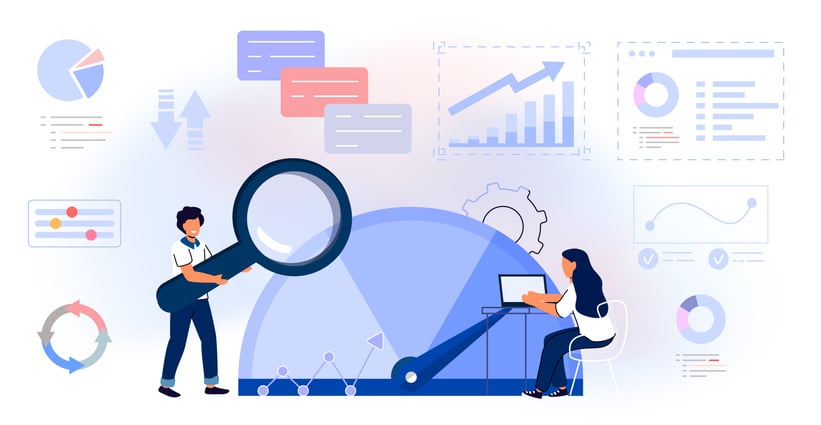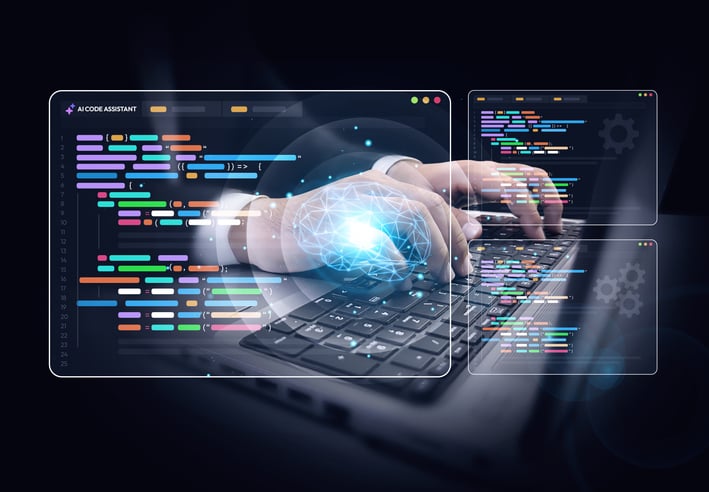We are witnessing, for the first time in economic history, the convergence of three determining elements for businesses. The emergence of Blockchain technology enables the distribution of capital, income, and membership rights more automatically. The principles of shared governance and agility inherited from sociocracy, SCRUM, and Lean Startup have permeated widely. The COVID-19 crisis has questioned the meaning of work more acutely than ever before and made new operating modalities possible that were previously considered unthinkable. Smart Contracts and Blockchain have given rise to DAOs (Decentralized Autonomous Organizations). Boosted by the principles of shared governance, existing economic models could be disrupted, and capitalism fundamentally renewed.
COVID as an accelerator of new work practices
In March 2020, the principles of the next-generation company completely saturated literature and specialized press. However, daily behaviors still change only superficially. Nevertheless, the COVID pandemic has made irreversible the paradigm shift that next-generation companies have been announcing for several years. This underlying trend is constantly gaining momentum.
Massive and widespread telecommuting was previously unthinkable. Autonomy was perceived as necessarily risky for the company. Trust-based management was only associated with beatniks or Buddhist gurus. The decentralization of authority and responsibility promised assured chaos. The possibility of genuinely appreciating employees as they are was equated with unprofessionalism. Everything has now changed. Intellectual barriers have been breached.
But apart from a few startups and other companies that have decided to adopt methods and governance that meet the growing expectations of the talent market seeking "ultra-fluid" organizations, how quickly can traditional companies transform themselves?
DAO: A lever to scale up next-generation company principles?
According to Joost Schouten, co-founder of Nestr.io and partner at PowerShift Capital, it is unlikely that existing companies will choose to switch to the DAO model, i.e., decentralized and autonomous organizations.
However, there seems to be countless new organizations desiring to work differently. The emergence of spontaneously gathering communities worldwide, thanks to the omnipresence of the Internet, is strong. These groups have a common commitment, a unique goal, and a strong desire to accelerate real-world disruption at an unprecedented pace. They rely on diversity, varied profiles, and positive and equitable business management. For the first time in human history, this movement has a real chance of taking the form of a tsunami and sweeping everything away with it.
The main challenge of DAOs is to fulfill their inherent promise of decentralization. To do this, they must rely on a reliable governance and authority structure; otherwise, they will only make things worse: "The DAO model will either perpetuate the concentration of wealth in the hands of a few large shareholders or fulfill the promise of decentralization."
Moving away from implicit interpersonal hierarchies then appears crucial to achieve genuine authority decentralization. The operational capacity of DAOs often seems hindered by rigid governance rules and the lack of fluidity in their implementation.
A DAO, but for what purpose?
Although diversified, current DAO formats share common foundations. Joost Schouten identifies four important ones: "they consist of a set of digital assets and a treasury based on cryptocurrencies, tokens, and/or NFTs (Non-Fungible Tokens): these are digital files to which a digital certificate of authenticity has been attached: the file itself is fungible, meaning interchangeable, but the associated token is not. They are tracked and encoded in a Blockchain through a Smart Contract, which makes all transactions transparent and removes them from the control of a few individuals; a public register of members who have contributed to the work conducted by the DAO is meticulously kept, and any compensation or remuneration paid is automatically recorded there; a voting mechanism allows control of the use of the treasury but also the addition and removal of members; a governance token is assigned to each member to enable them to participate in the decision-making process."
By computationally encoding the mission of the company, an inviolable contract is created. It generates revenue, pays people to perform tasks, mobilizes the resources it needs to execute, all without needing human direction. Thus, DAOs hold a significant advantage: these work organization systems no longer revolve around people's place and role in a chain of command but rather around tailored contracts and the value that the worker creates.
Certainly, this alone is not enough to define an organization, let alone operate it on a daily basis. Joost Schouten confirms that the DAO says nothing about culture, strategy, prioritization hierarchy, employee engagement, operational decisions, conflict resolution, or feedback logic.
Moreover, the collective decision-making mechanism of a DAO - voting - is counterproductive. While a collective vote can be useful for providing perspective or making a strategic decision on asset allocation or the exclusion of an abusive member, for everything else, however, it is better to apply the right level of subsidiarity and trust responsible roles to make autonomous and transparent decisions. These roles often use the consent decision-making process of sociocracy to combine speed, collective process, and individual proactivity to improve the organization's functioning.
However, although we are still in the early stages of DAOs, it must be acknowledged that they eliminate the traditional format of the hierarchical system in a company composed of shareholders, a board of directors, an executive committee, and managers.
Why accommodate DAO and shared governance?
Joost Schouten believes it is essential to enrich the Smart Contracts encoded in the Blockchain of a DAO with information about collaborations at work outside of the Blockchain. For example, Smart Contracts can describe a role or a project.
A DAO is an elegant way to scale up what encode.org, the initiative of Holacracy founder Tom Thomison, has been doing for years, by defining rules for managing and distributing capital, ownership, compensation, and community participation in decision-making.
However, when it comes to governance clarity and daily operations, majority voting in DAOs is counterproductive.
The decentralized organization model, also known as shared governance, beloved by next-generation companies, has gained popularity in recent years, driven by agile methodologies and rituals. Organic, sociocratic, Teal (Frédéric Laloux), or Holacratic (Tom Thomison) governance models can, according to Joost Schouten, fill the gaps of a DAO, especially in terms of authority distribution and operational decision-making through the use of roles and circles that explicitly define who does what and with what autonomy. The quality of consent-based decision-making in a DAO is unparalleled. Explicitly designating facilitators for each team or circle to ensure compliance with equivalence and fairness principles strengthens the inclusive nature of the DAO's decision-making, which is often too abrupt.
As classical organizational models are being challenged, we are witnessing the spontaneous emergence of next-generation companies on the Blockchain or in the political sphere via social networks. It disrupts existing institutions, but their glaring lack of governance and structure limits their success. Therefore, long-standing efforts to provide solid frameworks for shared governance have firmly anchored authority decentralization, agile work methods, and collective and effective decision-making.
These efforts towards shared governance find an unprecedented lever for scaling up in DAOs. It will probably not be a mutation of the existing economy, but the emergence of a new generation of organizations that, hopefully, will be more humane, fairer, and more focused on solving the real problems our world needs to address.



